Are You Liberated? And What That Means For Habit Change
ARE YOU LIBERATED? AND WHAT THAT MEANS FOR HABIT CHANGE (ISSUE 88)
By Diane Gold
YOU ARE LIBERATED
“You are liberated,”
was the response I got when my student asked me my age, and I told her with no hesitation. She then responded that she doesn’t share her age. Her withholding her age is part of a social more that is, in my opinion, holding us from being liberated.
 Hearing these words brought back a whole series of memories starting with a story my mother told me about her childhood. Now, I know that I have always been an explorer and that if a rule or tradition didn’t make sense to me, I always questioned it. I was encouraged to do so by both my parents.
Hearing these words brought back a whole series of memories starting with a story my mother told me about her childhood. Now, I know that I have always been an explorer and that if a rule or tradition didn’t make sense to me, I always questioned it. I was encouraged to do so by both my parents.
Let’s go back to my mom. She was extremely free, meaning that she didn’t live by societal rules that were empty, prejudiced and thoughtless. She was ahead of her time, realizing her self-worth as more than a housewife and a mother. She was a great example of the Women’s Liberation Movement that was prevalent in my youth in the 60s, even though she was not from that generation. And she passed it on to me.
 So, let’s backtrack to when my mom was one-year-old. (This photo is not my mom. Because of her free spirit, I believe she would laugh if she saw this representation. This photo is used with lots of love and memories of nurturing.) She told me that she loved to see a plate break on the floor, that she would laugh with abandon at this phenomenon. Maybe it was the excitement of seeing the pieces scatter. It was a favorite activity, nonetheless. And my grandfather used to buy her plates so that she could knock them off her highchair so that she could laugh and be free. Yes, he was liberated, too.
So, let’s backtrack to when my mom was one-year-old. (This photo is not my mom. Because of her free spirit, I believe she would laugh if she saw this representation. This photo is used with lots of love and memories of nurturing.) She told me that she loved to see a plate break on the floor, that she would laugh with abandon at this phenomenon. Maybe it was the excitement of seeing the pieces scatter. It was a favorite activity, nonetheless. And my grandfather used to buy her plates so that she could knock them off her highchair so that she could laugh and be free. Yes, he was liberated, too.
My grandfather was a great fan of the second-hand store, which we now know as the thrift store. I got some of my most precious toys from his jaunts to this type of store. Apparently, this is the kind of store from which he bought plates for my mother to break. He was encouraging of her happiness and thought this would make her a free and happy human being.
Most parents would discipline their children away from this type of behavior at this young age. Of course, at some point, my mother was taught that plates are for eating and not for throwing. But the freedom she had in her formative years surely affected her. I firmly believe that this type of childhood education allowed my mother to be the free and happy spirit she was.
 I did not throw plates, but I was encouraged to be my own person, ask questions about anything for the purpose of becoming a productive and liberated person. I can’t swear that my parents were thinking of the word “liberation” when they were raising me. They just saw no need to teach me to be seen and not heard as was and still is a popular method of child-rearing. Personally, I think this method can repress a child’s spirit and disable a child’s curiosity. Respect for elders and familial hierarchy can be taught in many ways, but free speech, in my opinion, should begin at the earliest of ages.
I did not throw plates, but I was encouraged to be my own person, ask questions about anything for the purpose of becoming a productive and liberated person. I can’t swear that my parents were thinking of the word “liberation” when they were raising me. They just saw no need to teach me to be seen and not heard as was and still is a popular method of child-rearing. Personally, I think this method can repress a child’s spirit and disable a child’s curiosity. Respect for elders and familial hierarchy can be taught in many ways, but free speech, in my opinion, should begin at the earliest of ages.
This leads me to the idea that when people are repressed due to upbringing, they tend to end up with less than even temperament, such as bossy or submissive. These traits usually cause some sort of life tension.
OLD-SCHOOL CLARIFICATION
 Let me clarify that many people raised in the “be seen and not heard” old-school philosophy are successful, happy, shining and wonderfully balanced. There are, however, many of us raised with restrictions every time we turn around, such as don’t speak unless we are asked a question, always be available as a servant to our parents, all friends must be researched for family stature and then brought to the house for approval; we are often stressed, repressed and depressed because of it. Certainly, we are rarely liberated and feel the pain of not being trusted.
Let me clarify that many people raised in the “be seen and not heard” old-school philosophy are successful, happy, shining and wonderfully balanced. There are, however, many of us raised with restrictions every time we turn around, such as don’t speak unless we are asked a question, always be available as a servant to our parents, all friends must be researched for family stature and then brought to the house for approval; we are often stressed, repressed and depressed because of it. Certainly, we are rarely liberated and feel the pain of not being trusted.
I’m not suggesting that all parents should buy plates for their kids and let them toss a plate from the high mount, the highchair. I’m also aware that there’s no proof this plate activity had the huge influence on my mom that it could have since this event does not have a control subject meaning we had life-long data on another subject of my mother’s age who wanted to throw plates and was restricted from doing it. My mother was one of the most balanced human beings I ever met, and her father assessed the wonderful laughter that came from this plate activity as good for her.
NON-SUPPORTIVE PARENTS
Many parents, due to frustration, money problems or runoff behavior from their parents, may not treat us well as children. These actions certainly shape us and affect the way we see the world. They do not have to define us.
RESULTS
For those of us who wish to keep what we have been given in our upbringing, this is our choice. We have to notice whether it is hurting us or not. I am the first one to say that traditions which are the habits of our family or tribe can be bolstering, rooting, unifying. However, if these habits or the perceptions from these habits hurt us, action would be a good choice.
THE LIST
Here is a sample list of habits developed from society or upbringing. These may or may not support our lives. When there is anxiety attached to any of these, action may be in order. Action is liberation.
1) We hide our age because we will be judged by it. Unfortunately, society does judge us by age. Revealing age out loud helps us adjust to it. It also can reduce the amount of judgment initiated about such a superficial trait.
 2) We don’t speak up due to our self-image. This usually has to do with the fact that we are younger, older, the minority sex in the group, the wrong sexual orientation, a woman whose place (in in someone else’s mind) is in the home, the wrong nationality, religion or socio-economic level.
2) We don’t speak up due to our self-image. This usually has to do with the fact that we are younger, older, the minority sex in the group, the wrong sexual orientation, a woman whose place (in in someone else’s mind) is in the home, the wrong nationality, religion or socio-economic level.
Today’s New York Times talked about scientific studies of how people who lived in poverty in their early years maintain the scars of this experience their whole lives and live shorter lives as a result. Unless they address their feelings.
3) We maintain a stance of submission. When we have been encouraged to be silent and non-assertive or when our families have ridiculed us, we have not worked at our assertive selves. Much like debate class prepares us to speak up, speaking out as children gives us the experience we need. If we have not been encouraged to do so, the repetition necessary to learn to be assertive may be missing. And, often times, it is easier to stay with what we know. Even if it eats at us.
ACTION STEPS FOR LIBERATION
1) Define one of the habits you have that causes discomfort. Do so by writing it down in a one or two paragraph statement. This can be solely for you, so there is no need to hold back.
 2) Once you have the habit defined (let’s say, for example, that you don’t speak because of past negative reinforcement), go to the mirror in the morning and say to yourself,
2) Once you have the habit defined (let’s say, for example, that you don’t speak because of past negative reinforcement), go to the mirror in the morning and say to yourself,
“I restrict myself from speaking because my parents told me I wasn’t a good speaker. This is totally incorrect. I am a good speaker, and I am a valuable human being.”
3) Repeat this mirror behavior in the evening and alone, possibly when you are in the bathroom.
4) Repeat this morning and evening mirror work for a week.
5) If you have successfully completed a week, write a paragraph about your new found comfort with yourself. This paragraph is not dependent upon whether you feel the comfort level or not.
6) Read the paragraph in the mirror. An example paragraph might be,
“I certainly feel confident in myself. I can read this paragraph well. I know the more I read it, the more comfortable I will become. The more I feel good about my ability to speak, the smoother it will sound. The smoother it sounds, the more I will want to speak more openly. The more I speak more openly, the more ability I will obtain. I am a good speaker, and I am a valuable human being.”
7) Read this paragraph once or twice a day for a week.
8) If you have succeeded at reading for a week, add a week.
9) If you have succeeded at two weeks, add a third week. Feel free to change the paragraph that you are reading.
10) Know that you have taken the step has become your new habit.
CONCLUSION
When we are held down by our habits, whether from the constant memory of a family member or a bully saying we are worthless, or having to act like a Cinderella servant, we repetitively are trapped experiencing the same feelings over and over again. We take on habits we don’t even know we have, and they form us. 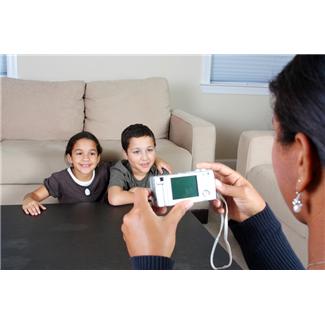
Sometimes, we don’t realize we have them until we are passing them on to our children. Only then do we recognize how influential our childhood was and how impressionable we were to have kept a habit that does not positively support our life.
There is always time to change a habit. The beginning only takes one step. Just as the mind can be liberated in one thought, it is the one step that starts the process. If we are not liberated as we read this and we choose to be, we can liberate ourselves now by taking one step. We must be patient with ourselves since our habit was not made overnight. We must repeat the step until it becomes familiar. Slowly, the step will become the habit, and the reward will be there.
____________________________________________________________________
FEEDBACK
Please leave a comment and LIKE.
DIANE GOLD, AUTHOR
Diane Gold, Founder of Warriors of Weight, Turning Habits Into Health, is a mentor in tai chi, kung fu and meditation, a music, fitness and stress expert, dedicated mom, studying plant-based nutrition.
She has always believed it is almost as important to free ourselves inside as outside. There are ways to proceed that can make it easy. She says,
“It is devastating for people who do not have their physical freedom. But, for those who do, it is important to work on our inner freedom. Through small, continual steps, we can have this. No exclusive technique or direction is needed, only that we work on ourselves in some way. A little bit every day.
“This work can be done in honor of those who do not have their physical freedom and in hopes that we can all live with some freedom, inside and out.”

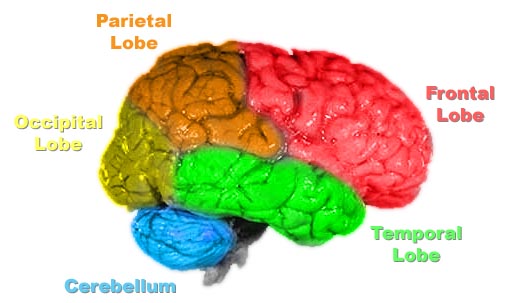 An MIT study last October at the McGovern Institute For Brain Research, authored by Kyle Smith, Ann Graybiel, et al, showed how rats continued their learned habitual behavior even when their reward was removed.
An MIT study last October at the McGovern Institute For Brain Research, authored by Kyle Smith, Ann Graybiel, et al, showed how rats continued their learned habitual behavior even when their reward was removed. Often times, we put tremendous value on what we do. If we write, we believe our writing helps the readership. If we compose, we are enamored with our own work. If we teach, we think we are the best. If we are fighters, we believe we are the best.
Often times, we put tremendous value on what we do. If we write, we believe our writing helps the readership. If we compose, we are enamored with our own work. If we teach, we think we are the best. If we are fighters, we believe we are the best. 2) PASSING JUDGMENT
2) PASSING JUDGMENT In order for these action steps to take shape, we must repeat them over and over, each time we have the opportunity. The idea is to change the habit of inflexible mind we have instilled in ourselves, and instill a new one, the habit of flexible mind. It requires self-mind training, as with any habit!
In order for these action steps to take shape, we must repeat them over and over, each time we have the opportunity. The idea is to change the habit of inflexible mind we have instilled in ourselves, and instill a new one, the habit of flexible mind. It requires self-mind training, as with any habit! Have a question about a habit, nutrition, plant-based nutrition, tai chi, music, parenting, life? Ask here and, if we don’t know the answer, we will ask our qualified panelists and professional colleagues to help get you your answer.
Have a question about a habit, nutrition, plant-based nutrition, tai chi, music, parenting, life? Ask here and, if we don’t know the answer, we will ask our qualified panelists and professional colleagues to help get you your answer. The grade game refers to the habit of using grades to determine success in education. This measurement system is known all over the world. How often does it work?
The grade game refers to the habit of using grades to determine success in education. This measurement system is known all over the world. How often does it work?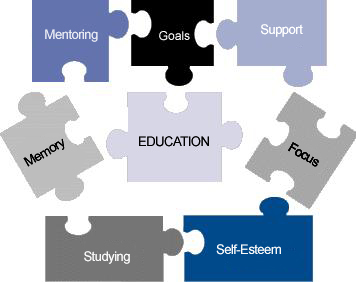 I read an article by Michael Thomsen, “The Case Against Grades,” at Slate.com the other day. In it, he supports the trend moving away from grades in school. He talks about the “negative reinforcement” that comes from this type of system. Having been a specialty teacher for 10 years in the New York City and State School Systems, and a private teacher for another several decades, I have first-hand experience at watching students and serving their differences.
I read an article by Michael Thomsen, “The Case Against Grades,” at Slate.com the other day. In it, he supports the trend moving away from grades in school. He talks about the “negative reinforcement” that comes from this type of system. Having been a specialty teacher for 10 years in the New York City and State School Systems, and a private teacher for another several decades, I have first-hand experience at watching students and serving their differences. 1) Children cut school for fear of failing a test.
1) Children cut school for fear of failing a test.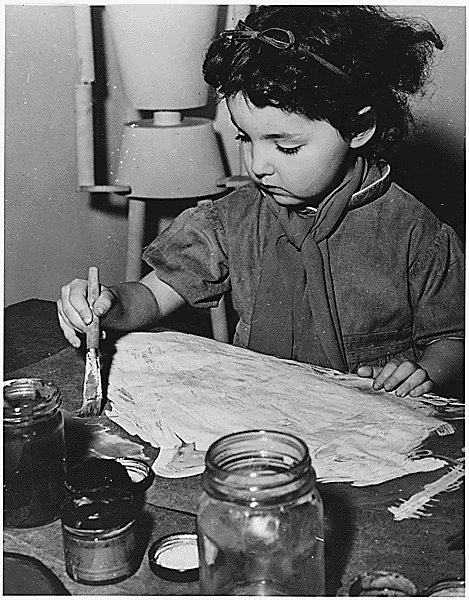
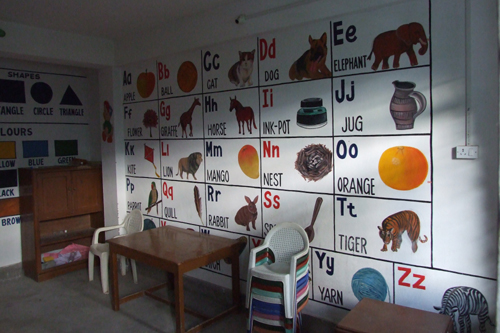 Placing children in a molded system that does not embellish their interests and their strengths represses their creativity, curbs their intelligence, crushes their self-worth and perpetuates a system that needs change. Having a system that is evolutionary in nature and is not framed around “the grading game” seems fresh, logical, sensible and
Placing children in a molded system that does not embellish their interests and their strengths represses their creativity, curbs their intelligence, crushes their self-worth and perpetuates a system that needs change. Having a system that is evolutionary in nature and is not framed around “the grading game” seems fresh, logical, sensible and

 Now, I don’t believe that blame is something helpful, but I do believe that, because women have accepted the position of inferiority, they have perpetuated a myth that carries on to this day. I also believe that, if women who are oppressed fight for their own equality (I am not speaking of the gentle oppressions where women make less money, have more domestic responsibilities, get worse jobs, but of stark, horrific oppression such as domestic slavery, sex slavery, trafficking, second class citizenship that exist in many nations), the fight would cause as many female deaths as in any civil war to date.
Now, I don’t believe that blame is something helpful, but I do believe that, because women have accepted the position of inferiority, they have perpetuated a myth that carries on to this day. I also believe that, if women who are oppressed fight for their own equality (I am not speaking of the gentle oppressions where women make less money, have more domestic responsibilities, get worse jobs, but of stark, horrific oppression such as domestic slavery, sex slavery, trafficking, second class citizenship that exist in many nations), the fight would cause as many female deaths as in any civil war to date. There are women who are born into prostitution. In certain sections of the world, 3 generations of women can be found to be prostitutes. In the red light district of Kolkata (formerly spelled Calcutta), a prevalent family business is this: the mother is a prostitute as is her mother. The father waits for the female children of his wife to become 10 years old (or worse, 7 years old) so that he can turn them out into prostitution so that the family can eat and live.
There are women who are born into prostitution. In certain sections of the world, 3 generations of women can be found to be prostitutes. In the red light district of Kolkata (formerly spelled Calcutta), a prevalent family business is this: the mother is a prostitute as is her mother. The father waits for the female children of his wife to become 10 years old (or worse, 7 years old) so that he can turn them out into prostitution so that the family can eat and live.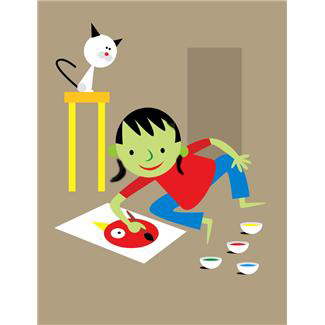 Accepting the thinking that it’s OK to putting children into prostitution for money is a bad habit. It is also a way of thinking and acting that has been accepted in current and past society as normal.
Accepting the thinking that it’s OK to putting children into prostitution for money is a bad habit. It is also a way of thinking and acting that has been accepted in current and past society as normal.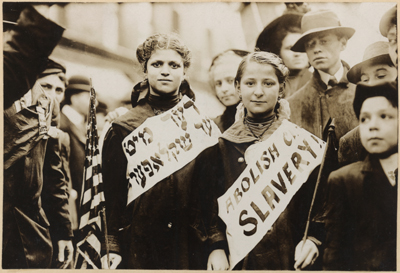 In certain cultures, women are forced into being one of many wives, forced into being consorts, forced into the life of a sex slave, a baby machine or a maid. This is partly the fault of women who accept this. But their alternative would be death, ostracism or, at least, fear of death and disfigurement.
In certain cultures, women are forced into being one of many wives, forced into being consorts, forced into the life of a sex slave, a baby machine or a maid. This is partly the fault of women who accept this. But their alternative would be death, ostracism or, at least, fear of death and disfigurement.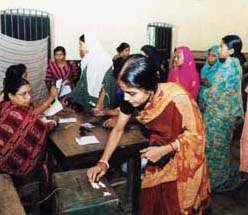 It is time we worked on changing the concept and reality of women as slaves. It is time we all became better human beings. It’s crucial to engage in conversations. It is also important to consistently talk about abuse of women in literature and in every country in the world.
It is time we worked on changing the concept and reality of women as slaves. It is time we all became better human beings. It’s crucial to engage in conversations. It is also important to consistently talk about abuse of women in literature and in every country in the world. The gender issue is alive and well all over the world. There are many sides to it and hurdles we can turn to our advantage. I just read in Wikipedia,
The gender issue is alive and well all over the world. There are many sides to it and hurdles we can turn to our advantage. I just read in Wikipedia, As a direct result of our having been deemed the weaker sex in the past, women may act with cold, ruthless and inflexible behaviors. If we react because of a perceived vulnerable reputation, we’re living someone else’s perception. If we become strong, capable achievers, we will change old thinking. As the decades pass.
As a direct result of our having been deemed the weaker sex in the past, women may act with cold, ruthless and inflexible behaviors. If we react because of a perceived vulnerable reputation, we’re living someone else’s perception. If we become strong, capable achievers, we will change old thinking. As the decades pass. Because our families may have bought into the gender issue; we women may not have learned boxing, martial arts, how to stand up for our physical selves. We may be walking around lacking personal protection training with that shaky inner feeling of slight anxiety. This emotion is not gender specific, although many favor the old gender specific attitudes; this insecurity shows up in anyone who has not been trained in strength training, meditation and some type of combat. A big oversight in our school and parenting systems leaves this out. This deprivation of training causes much stress that exists in anyone who has ever been confronted by a bully, a demanding significant other or an authority figure.
Because our families may have bought into the gender issue; we women may not have learned boxing, martial arts, how to stand up for our physical selves. We may be walking around lacking personal protection training with that shaky inner feeling of slight anxiety. This emotion is not gender specific, although many favor the old gender specific attitudes; this insecurity shows up in anyone who has not been trained in strength training, meditation and some type of combat. A big oversight in our school and parenting systems leaves this out. This deprivation of training causes much stress that exists in anyone who has ever been confronted by a bully, a demanding significant other or an authority figure.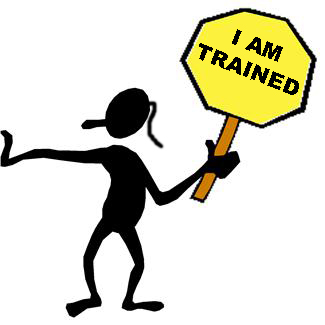 It is most appropriate for every one of us to learn how to protect ourselves: girl, boy, woman, man. As they say, knowledge is power. When we are well trained, we doubt ourselves less, maintain awareness of what’s around the corner and are more prepared to interpret and successfully meet physical contact and body language of others.
It is most appropriate for every one of us to learn how to protect ourselves: girl, boy, woman, man. As they say, knowledge is power. When we are well trained, we doubt ourselves less, maintain awareness of what’s around the corner and are more prepared to interpret and successfully meet physical contact and body language of others. One wonders why personal safety training has not been added to “the” required school curriculum beginning in elementary school. This type of training is basic to our ability to build a strong emotional and physical foundation. How could it be left out? It also tempers the spirit so that violence is met with temperance. Go figure.
One wonders why personal safety training has not been added to “the” required school curriculum beginning in elementary school. This type of training is basic to our ability to build a strong emotional and physical foundation. How could it be left out? It also tempers the spirit so that violence is met with temperance. Go figure. We are not objects to be gawked at dressing for the pleasure of others. We are brilliant beings who can choose the way we look and feel in a world we are involved in changing. If we choose to dress for others, that’s great. As long as it soothes, rather than inflames, our nature.
We are not objects to be gawked at dressing for the pleasure of others. We are brilliant beings who can choose the way we look and feel in a world we are involved in changing. If we choose to dress for others, that’s great. As long as it soothes, rather than inflames, our nature.
 7)
7) We remember the impressions from our childhood, the good, the bad, especially the ugly. There are many we haven’t even actualized into words. They form us, though.
We remember the impressions from our childhood, the good, the bad, especially the ugly. There are many we haven’t even actualized into words. They form us, though. Sabrina Barnett, best known for being a high fashion model, a musician and philanthropist, is an evangelist for women’s self-esteem and has designed women’s empowerment clothing for that purpose. This article is based on our interview. (Check out Sabrina’s T-shirt coupon, too.)
Sabrina Barnett, best known for being a high fashion model, a musician and philanthropist, is an evangelist for women’s self-esteem and has designed women’s empowerment clothing for that purpose. This article is based on our interview. (Check out Sabrina’s T-shirt coupon, too.)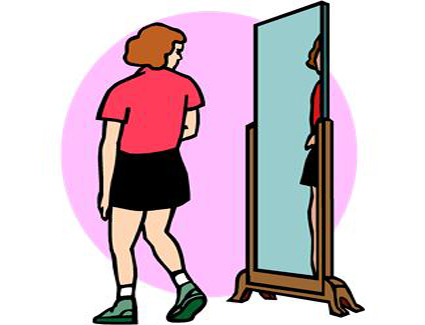 And then understanding, wow, we’ve got a real problem with self-esteem issues with women, no matter whether they are professional models or whether they are what society says is not attractive, which is really the reason why I decided to come up with this empowerment line for women.
And then understanding, wow, we’ve got a real problem with self-esteem issues with women, no matter whether they are professional models or whether they are what society says is not attractive, which is really the reason why I decided to come up with this empowerment line for women.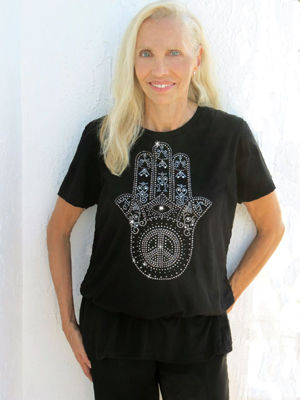 … gorgeous pictures that you see – there’s a makeup artist that works on you an hour, a hairdresser that works on you an hour, best photographers, best assistants, best lighting. They take five hundred pictures, if not more. So, it’s really an illusion.
… gorgeous pictures that you see – there’s a makeup artist that works on you an hour, a hairdresser that works on you an hour, best photographers, best assistants, best lighting. They take five hundred pictures, if not more. So, it’s really an illusion.
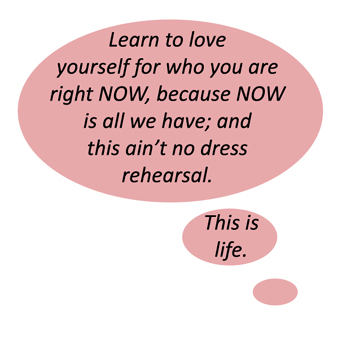 Diane Narrative
Diane Narrative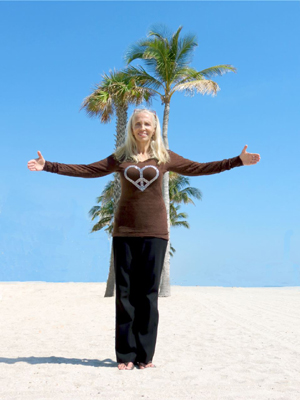 Diane Narrative
Diane Narrative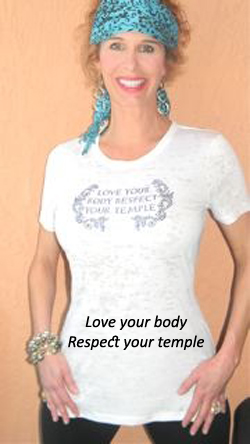 … you put on a T-shirt, a Lovable Tee that says, ‘I am worthy,’ ‘I’m the star in my life and love’s got my back.’ Well, love’s got my back because I have to know that I’m worthy. And I’m not talking from an egotistical standpoint. I’m simply talking, you know what?
… you put on a T-shirt, a Lovable Tee that says, ‘I am worthy,’ ‘I’m the star in my life and love’s got my back.’ Well, love’s got my back because I have to know that I’m worthy. And I’m not talking from an egotistical standpoint. I’m simply talking, you know what? 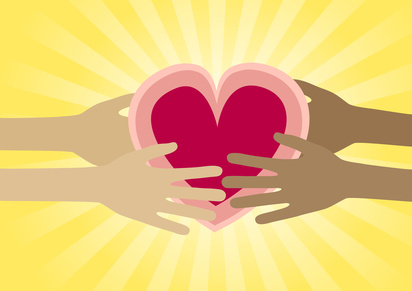 One of the things I’m asking your audience to do is create time to be charitable, to give back … And, if you don’t have a dollar to do so, then maybe you may want to think about giving back of your energy, like hopefully something that you and I are doing inside this conversation might help somebody in some way.
One of the things I’m asking your audience to do is create time to be charitable, to give back … And, if you don’t have a dollar to do so, then maybe you may want to think about giving back of your energy, like hopefully something that you and I are doing inside this conversation might help somebody in some way. Sabrina’s Mission can be summed up as follows:
Sabrina’s Mission can be summed up as follows: Many people live their lives in this state of hurt yet keep it buried deep inside not realizing that it affects their world and all the relationships around them. What does it take for a person to be able to brush herself off and stand strong when life’s circumstances seem too difficult to bear? It takes Courageous Communication to transform our lives from a place of fear and uncertainty to a place of bold courage and action.
Many people live their lives in this state of hurt yet keep it buried deep inside not realizing that it affects their world and all the relationships around them. What does it take for a person to be able to brush herself off and stand strong when life’s circumstances seem too difficult to bear? It takes Courageous Communication to transform our lives from a place of fear and uncertainty to a place of bold courage and action. Without personal love and respect, we risk being taken advantage of, walked all over, disrespected or worse. Do we know why? Because other people have not been told how we wish to be treated. If we don’t tell people how to treat us, they are left to their own imagination of what works…and it usually works for them. By communicating to others how we wish to be treated, we set up the relationship for success. We harness the responsibility for our own happiness and by setting the standard of powerful communication, we create the environment to nurture and heal the most important relationships in our life.
Without personal love and respect, we risk being taken advantage of, walked all over, disrespected or worse. Do we know why? Because other people have not been told how we wish to be treated. If we don’t tell people how to treat us, they are left to their own imagination of what works…and it usually works for them. By communicating to others how we wish to be treated, we set up the relationship for success. We harness the responsibility for our own happiness and by setting the standard of powerful communication, we create the environment to nurture and heal the most important relationships in our life.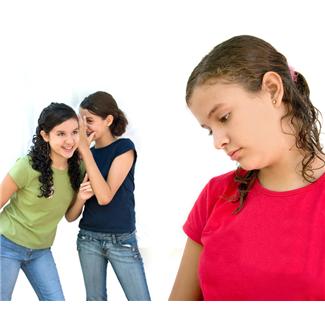

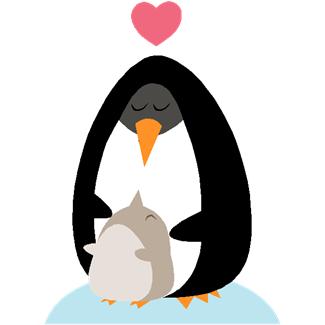
 1) Watch Our Language: Yes, this one is painfully obvious, but not always as easy as we think. Be careful about the nicknames. It may seem silly, but I can tell you it is brought up over and over again in therapy sessions. Save yourself the money and choose a name that is healthy and appropriate!Try to curb your appearance-related comments. I know this is not going to eliminate every comment regarding appearance and there may even be times when a, “Wow! You look amazing!” is totally appropriate (shall we say prom night?), but on the whole, ensure that your focus is on your child’s character and accomplishments. Try this on for size, “You must feel great about [accomplishment, ex.: getting that award]. That shows real [character trait, ex.: courage].” After all, isn’t that what we really care about?
1) Watch Our Language: Yes, this one is painfully obvious, but not always as easy as we think. Be careful about the nicknames. It may seem silly, but I can tell you it is brought up over and over again in therapy sessions. Save yourself the money and choose a name that is healthy and appropriate!Try to curb your appearance-related comments. I know this is not going to eliminate every comment regarding appearance and there may even be times when a, “Wow! You look amazing!” is totally appropriate (shall we say prom night?), but on the whole, ensure that your focus is on your child’s character and accomplishments. Try this on for size, “You must feel great about [accomplishment, ex.: getting that award]. That shows real [character trait, ex.: courage].” After all, isn’t that what we really care about?






